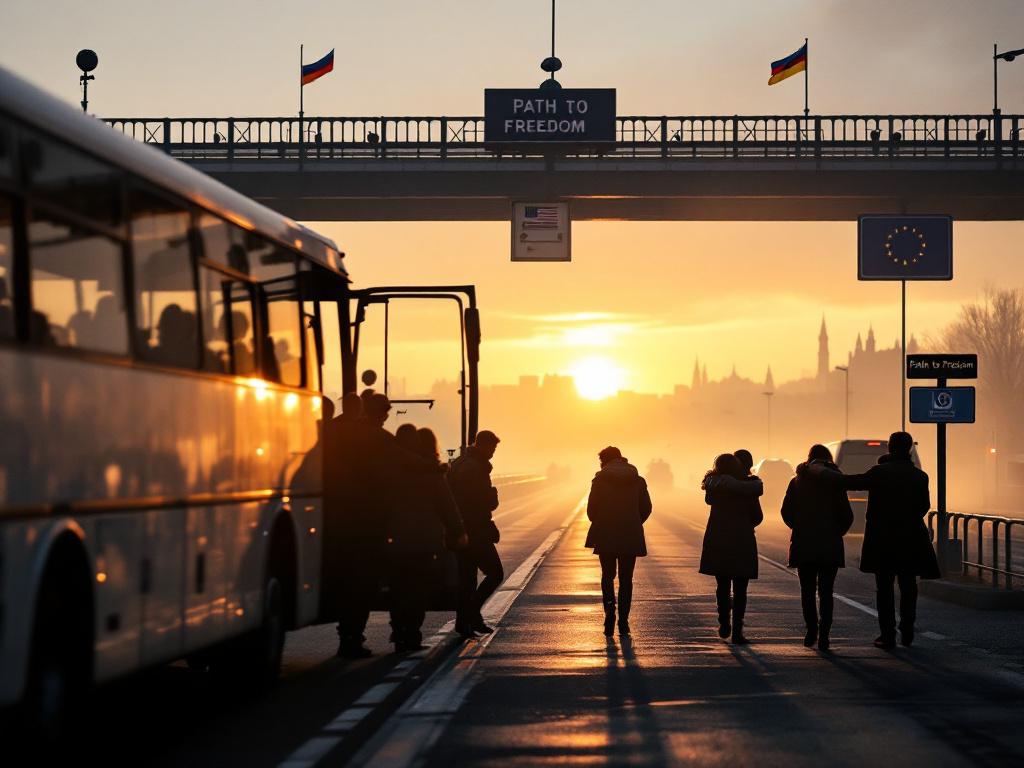
A symbolic scene at a border crossing between Belarus and Lithuania at dawn: a small group of recently freed detainees stepping off a bus into cool morning light, reunited with loved ones, gentle embraces and relief on their faces. In the background, subtle silhouettes of Minsk’s skyline fade into mist, while a distant diplomatic convoy hints at recent talks. European flags and a U.S. diplomatic badge appear unobtrusively on signage, suggesting international mediation. The mood is cautious hope—warm sunrise tones, soft fog, press cameras at a respectful distance, and a caption board reading “Path to Freedom” near a checkpoint.
Summary
Belarus unexpectedly released prominent opposition activist Sergei (Siarhei) Tikhanovsky and at least 13 other political prisoners, transferring them to Lithuania where Tikhanovsky reunited with his wife, exiled opposition leader Sviatlana Tsikhanouskaya. The move followed a rare visit to Minsk by U.S. envoy Keith Kellogg and was widely interpreted as a diplomatic gesture by President Alexander Lukashenko amid tentative outreach to the United States. European leaders welcomed the releases as a positive signal but emphasized that repression persists, with over 1,000 political detainees still held in Belarus. The development has sparked speculation about potential shifts in U.S.-Belarus relations and possible sanctions relief, even as concerns remain over Minsk’s broader human rights record and alignment with Russia.
Key Points
- Sergei Tikhanovsky and at least 13 others freed and sent to Lithuania
- Release followed rare visit by U.S. envoy Keith Kellogg to Minsk
- Tsikhanouskaya welcomed move but noted 1,000+ political prisoners remain
- European leaders hailed step while urging release of all detainees
- Speculation grows about sanctions relief and U.S.-Belarus rapprochement